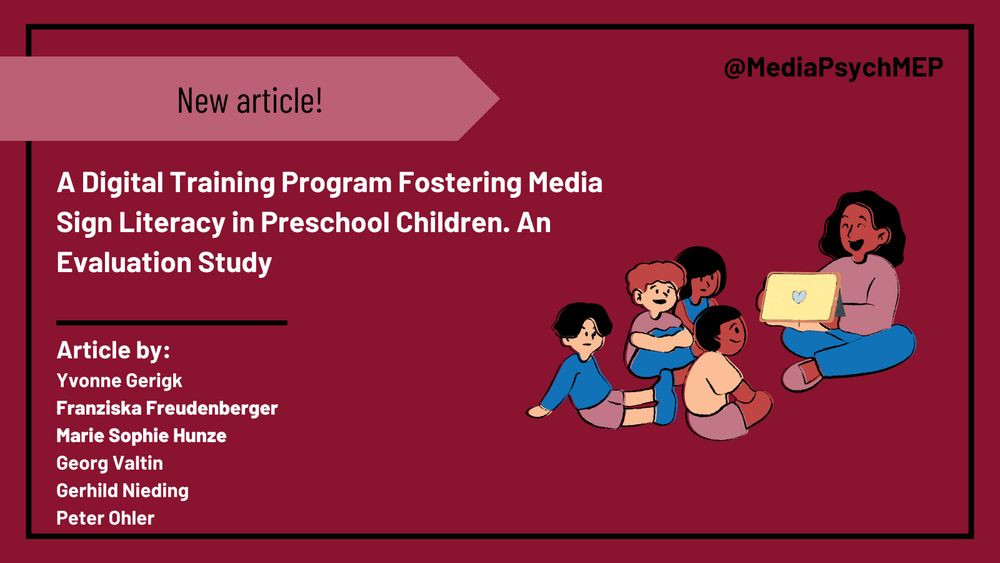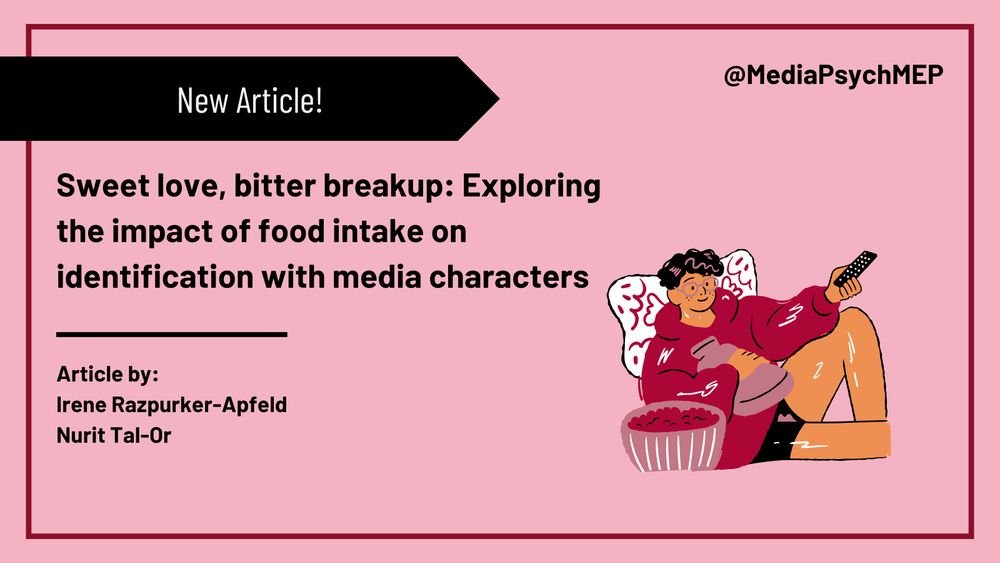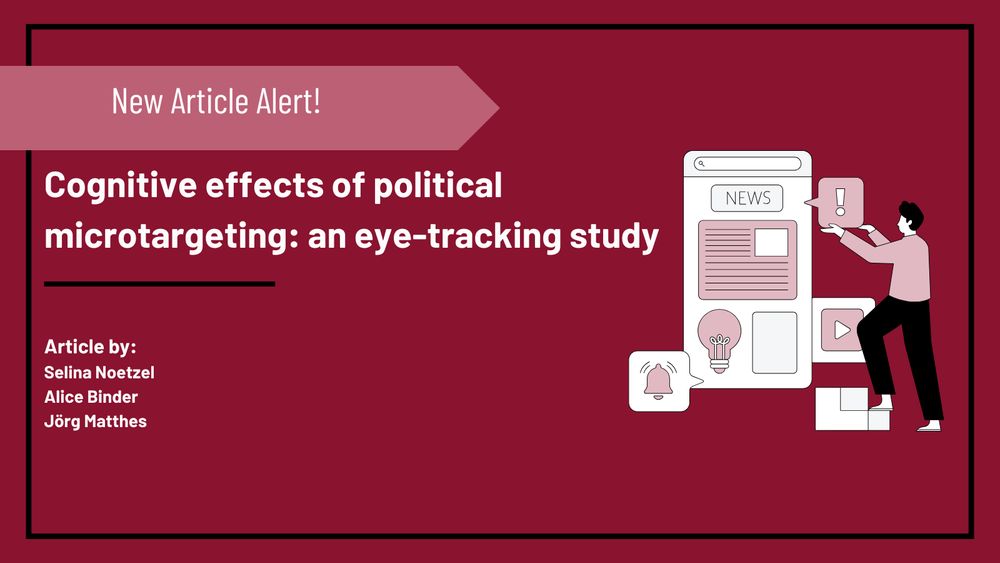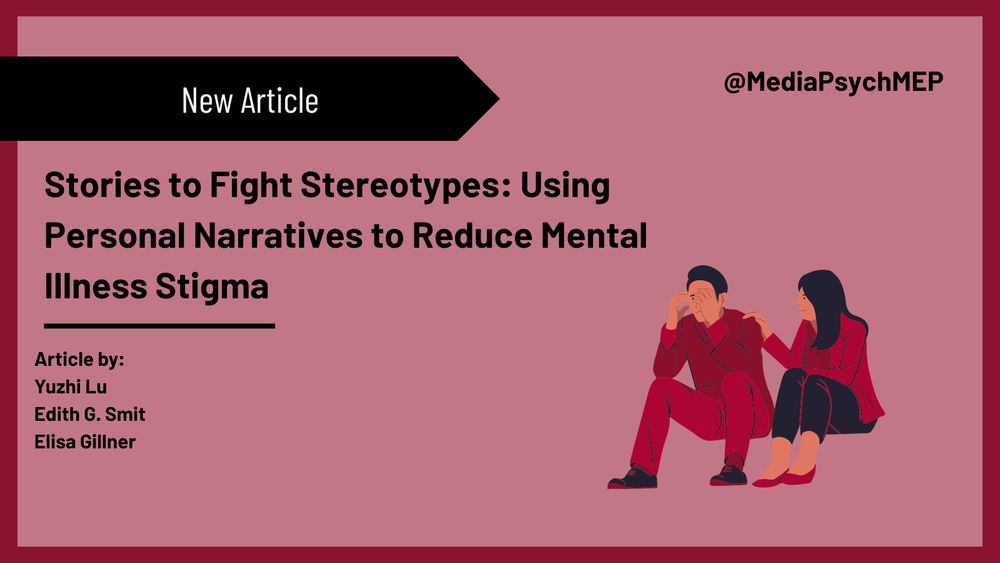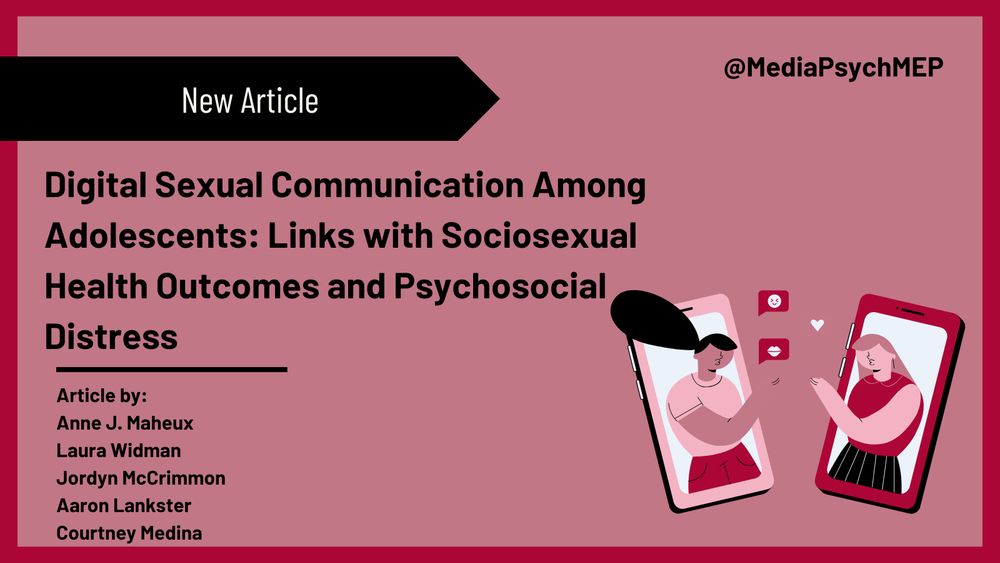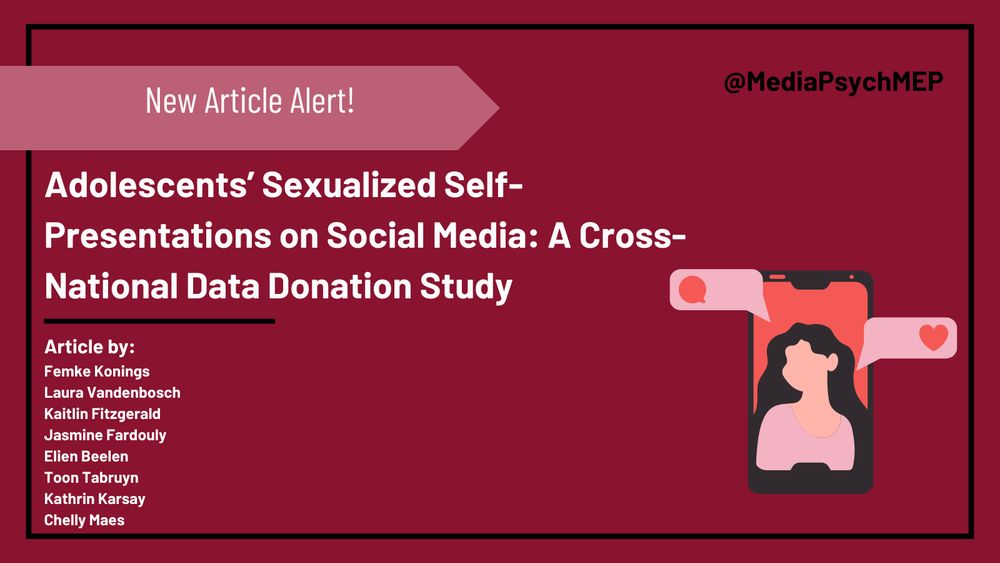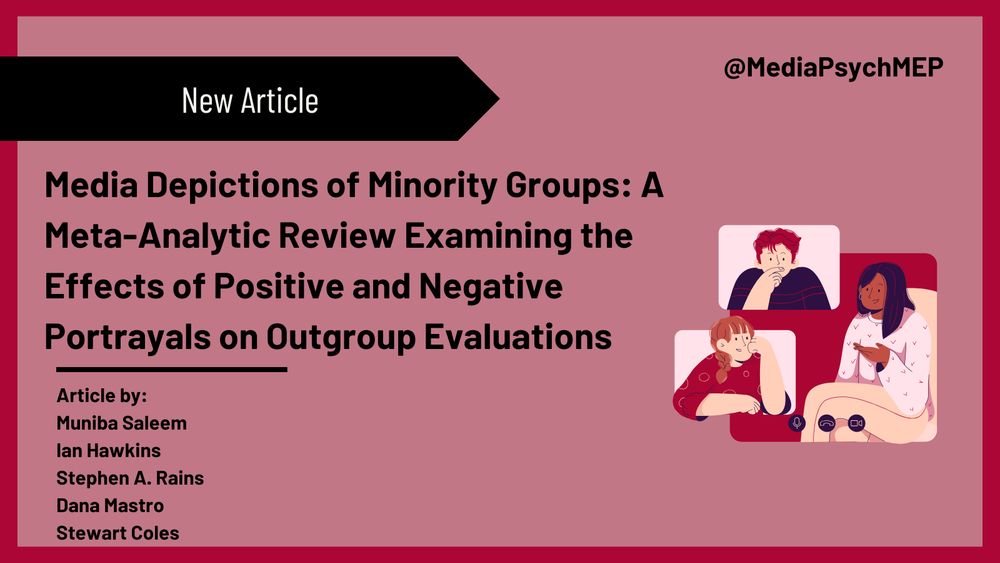MediaPsychMEP
@mediapsychmep.bsky.social
62 followers
26 following
31 posts
Media Psychology is an academic journal that publishes theoretically oriented, empirical research about media uses, processes, and effects.
https://www.tandfonline.com/toc/hmep20/current
Posts
Media
Videos
Starter Packs
MediaPsychMEP
@mediapsychmep.bsky.social
· Aug 18

Approaching Climate Change Through Fiction? The Effects of Coping Dispositions on Preferences for Climate Fiction Versus Non-Fiction
Climate change is a psychological threat. This research investigates how coping dispositions (vigilance and cognitive avoidance) affect preferences for fictional versus non-fictional information ab...
www.tandfonline.com
MediaPsychMEP
@mediapsychmep.bsky.social
· Aug 18
MediaPsychMEP
@mediapsychmep.bsky.social
· Jul 30
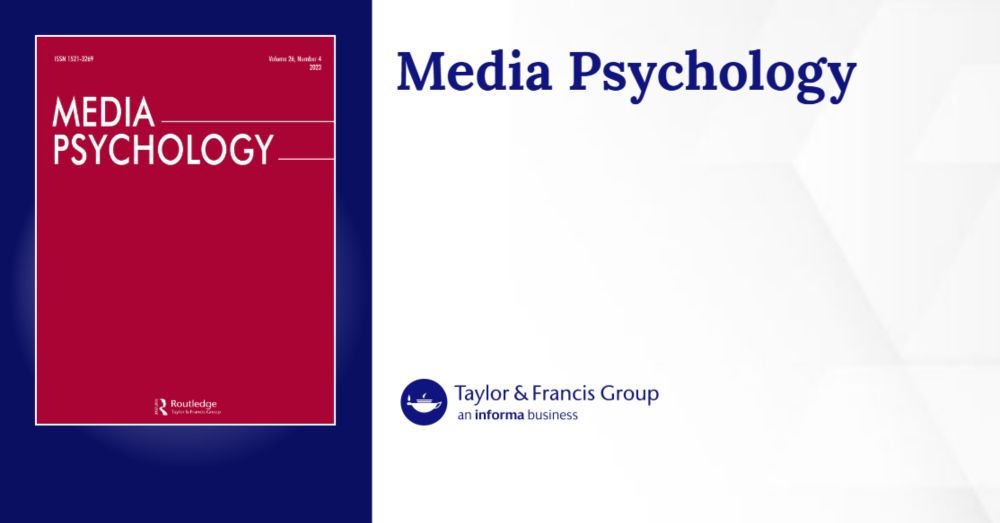
A Digital Training Program Fostering Media Sign Literacy in Preschool Children. An Evaluation Study
Despite the increasing importance of media literacy for preschool children, no scientifically proven measure exists for the training of this skill. We therefore designed a digital training program ...
www.tandfonline.com
MediaPsychMEP
@mediapsychmep.bsky.social
· Jul 30
MediaPsychMEP
@mediapsychmep.bsky.social
· Jul 23

Sweet love, bitter breakup: Exploring the impact of food intake on identification with media characters
Previous research has documented the effects of media engagement on food consumption. In this study, we explore the reverse effects of eating food of different tastes on engagement with media chara...
www.tandfonline.com
MediaPsychMEP
@mediapsychmep.bsky.social
· Jul 23
MediaPsychMEP
@mediapsychmep.bsky.social
· Jul 15

Cognitive effects of political microtargeting: an eye-tracking study
Political microtargeting (PMT) is theorized to impact citizens’ attention and cognitive processes required for coping with persuasive messages. The empirical basis for these assumptions is limited....
www.tandfonline.com
MediaPsychMEP
@mediapsychmep.bsky.social
· Jul 15
MediaPsychMEP
@mediapsychmep.bsky.social
· Jun 26

Stories to Fight Stereotypes: Using Personal Narratives to Reduce Mental Illness Stigma
This study concerns the narrative approach to reducing mental illness stigma. It uses an experimental methodology to examine the effects of disclosing (vs. not disclosing) recovery narratives in th...
www.tandfonline.com
MediaPsychMEP
@mediapsychmep.bsky.social
· Jun 26
MediaPsychMEP
@mediapsychmep.bsky.social
· Jun 23

Digital Sexual Communication Among Adolescents: Links with Sociosexual Health Outcomes and Psychosocial Distress
Communication with romantic and sexual partners is important for adolescent well-being. Features of digital media, such as limited social cues and asynchronous messaging, transform social interacti...
www.tandfonline.com
MediaPsychMEP
@mediapsychmep.bsky.social
· Jun 23
MediaPsychMEP
@mediapsychmep.bsky.social
· May 27
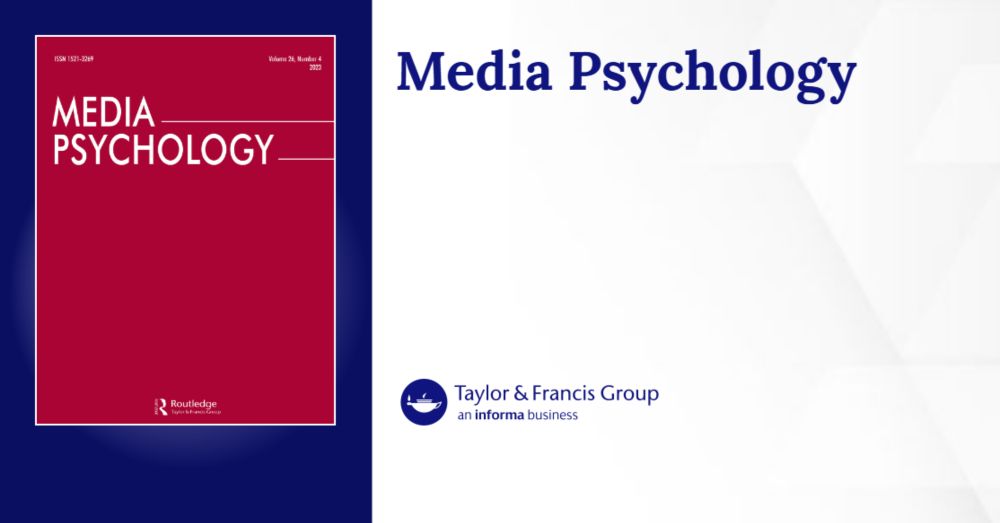
Adolescents’ Sexualized Self-Presentations on Social Media: A Cross-National Data Donation Study
Scholars, educators, and policymakers have expressed concerns about the sexualization of youth in popular social media platforms. Yet little is known about the prevalence of sexualized content on s...
www.tandfonline.com
MediaPsychMEP
@mediapsychmep.bsky.social
· May 27
Reposted by MediaPsychMEP


